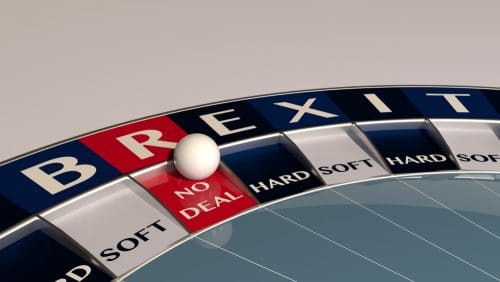How to survive the election without losing your mind
Look back, look forward and look around, writes Chris Goswami

I don’t know about you, but I keep changing my mind, about lots of things.
Should I support a second referendum? Of course not! Although I voted “Remain”, if we have a second referendum we undermine the nature of democracy. After all, why wouldn’t you then have or third and fourth referendum? (… let’s call it best of 5).
But, on the other hand, by the time we achieve Brexit it will be four years since the 2016 vote. In that time many elderly folk (who apparently support Leave) will have passed away, and many former teenagers (who apparently support Remain) will be of voting age. And others have changed their minds anyway.
If, however, you voted “Leave” (and still want to leave?) you could also be forgiven for being in two minds. Do you want a “hard or soft” Brexit? And who will now deliver that? Ironically if the BREXIT Party does incredibly well they make BREXIT less likely as they take votes from Conservative candidates.
…. So not sure about all that.
OK but who should I vote for? This election completely crosses normal party lines. In this BREXIT election, there has never been more opportunity for tactical voting, and it has never been more difficult to vote tactically … so not really sure about that either.
Looking back — four years of absurdity and worry
It’s been a long road since our Referendum in 2016. It now seems like some event in the distant past. But here we are, we face a third general election in five years, and things are changing so quickly, we no longer know who’s in the cabinet until we see they have resigned.
Brexit is also a cause of anxiety and depression for as much as one third of the UK population. Some are worried about their jobs while others simply feel overwhelmed with the constant droning on and on and on of argument and counter argument. It has led to feelings of helplessness among many. Meanwhile other countries are looking at us in complete bewilderment – how can such a sane democracy so lose its way?

Looking around — see the wood for the trees
Let’s remind ourselves that elections are always over-hyped. A few truths:
This election will not settle Brexit. If Labour win we are in for months of negotiating a new BREXIT deal and having a Second Referendum. In the unlikely event of the Lib Dems winning they will also introduce a Second Referendum. But even if the Tories win, Boris Johnson’s deal is only a jumping off point for years of wrangling over Britain’s future relationship with the EU. (And it also leaves the possibility of a no deal cliff-edge at the end of 2020). It might be “oven ready” but I’m afraid it’s only the first course. So Boris’s “Get BREXIT done” is as misleading in 2019 as “take back control” was in 2016.
Whoever you vote for you will likely feel disappointed. Apart from the Brexit issue, our party leaders all say similar things. They all care about the under-privileged. They are all keen to stress that society must be fairer, the economy stronger, and the climate cleaner. And apparently nobody is selling the NHS.
Most things will not change. Arthur Balfour, British Prime Minister at the turn of the 20th century, said, “Nothing matters very much, and most things don’t matter at all”. Well, some things do matter, but he had a point. In business, in politics in most practical matters of church and life, we tend to over-estimate the short-term impact that change will bring. Everything changes, everything remains the same.
Looking forward – positive steps to take
There has never been a more important time to disagree well. Don’t obsess about the lies (or “questionable claims”) of politicians, and don’t let them wind you up. Be curious – check stuff out eg see the fact-checking charity Full Fact, and remember most of our politicians make absurd statements when they feel under pressure. It doesn’t make them bad people — the vast majority of our MPs are in public service for the right reasons.
And among friends, neighbours, colleagues, and family: try to learn something from people who completely disagree with you. They have reasons for thinking the way they do. Be curious!
Try ignoring BREXIT and voting for something that matters to you. It’s understandable to be blind-sided by BREXIT. But what else matters to you? It might be the NHS, the climate or immigration policy. And what about the character of your local candidates – their personal ethics and lifestyle, if that is known. And you can easily discover how they voted on key topics that matter to you.
Uncertainty is always best dealt with by remembering certainty. Both sides of the Brexit argument keep telling us “business hates uncertainty”, but I think we all hate it. I for one like to know what might be happening next week, next month, so I can start to understand how it affects me.
But I sometimes wonder if God allows uncertain times so that we might better realise our dependence on him, instead of world systems, governments, money or intellect. What happens in the future is nowhere near as important as who accompanies us into that future. On the surface of life there will be waves, even storms, but deep down on the sea bed, there is an ocean of calm if we can only learn to rest, to abide, in Christ.
Who is it that accompanies you as you navigate life’s surprises?
Chris Goswami is Director of Communications at Openwave Mobility and Associate Minister at Lymm Baptist Church. He is the 2019 runner-up of Christian Blogger of the Year for www.7minutes.net, where this reflection previously appeared. It is republished with permission.
Images | Shutterstock
Do you have a view? Share your thoughts via our letters' page.
Baptist Times, 25/11/2019